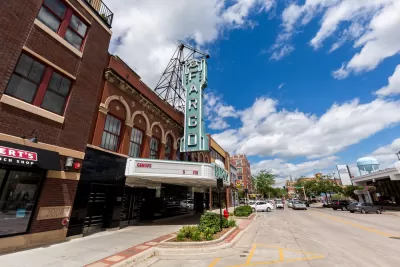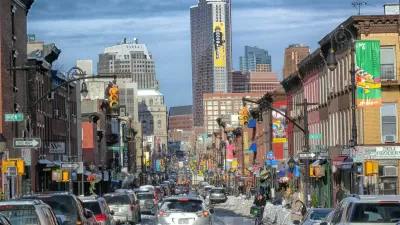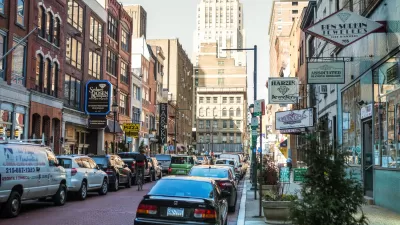A law making its way through the North Dakota Legislative Assembly would challenge a prevailing assumption in the state that free parking is a human right.

"Finding a place to park in North Dakota usually isn’t a big problem. With fewer than 10 residents per square mile, the state is famous for its emptiness," writes James Hagerty. But wait, there's a twist: "Yet lawmakers here are thinking about bringing back parking meters—which have been banned from the streets for 68 years and are still widely regarded with hostility."
In evidence of the state's resistance to parking meters, Hagerty quotes Mike Jacobs, a "retired newspaper editor who lives in North Dakota. "Free parking 'is pretty much regarded as a basic human right,'" explains Jacobs.
And yet…the North Dakota State Senate recently approved a bill that would allow parking meters to return to the streets of North Dakota, and the state's House of Representatives is expected to take up the matter this week. The bill also has local support, according to Hagerty: "The mayors of Fargo and several of the state’s other towns support ending the ban. They believe it would help free up spaces now hogged by downtown workers so that parking would be easier for people going to shops and restaurants." Local leaders also cite local control as a motivating factor behind their support for the bill.
The article includes a history of the state's parking meter ban, and also finds a recent example of a local jurisdiction that approved a similar ban—the city of Biddeford, in Maine.
[The Wall Street Journal article might be behind a paywall for some readers.]

Montreal Mall to Become 6,000 Housing Units
Place Versailles will be transformed into a mixed-use complex over the next 25 years.

Planetizen Federal Action Tracker
A weekly monitor of how Trump’s orders and actions are impacting planners and planning in America.

DARTSpace Platform Streamlines Dallas TOD Application Process
The Dallas transit agency hopes a shorter permitting timeline will boost transit-oriented development around rail stations.

Study: 4% of Truckers Lack a Valid Commercial License
Over 56% of inspected trucks had other violations.

Chicago Judge Orders Thousands of Accessible Ped Signals
Only 3% of the city's crossing signals are currently accessible to blind pedestrians.

Philadelphia Swaps Car Lanes for Bikeways in Unanimous Vote
The project will transform one of the handful of streets responsible for 80% of the city’s major crashes.
Urban Design for Planners 1: Software Tools
This six-course series explores essential urban design concepts using open source software and equips planners with the tools they need to participate fully in the urban design process.
Planning for Universal Design
Learn the tools for implementing Universal Design in planning regulations.
City of Mt Shasta
City of Camden Redevelopment Agency
City of Astoria
Transportation Research & Education Center (TREC) at Portland State University
US High Speed Rail Association
City of Camden Redevelopment Agency
Municipality of Princeton (NJ)





























